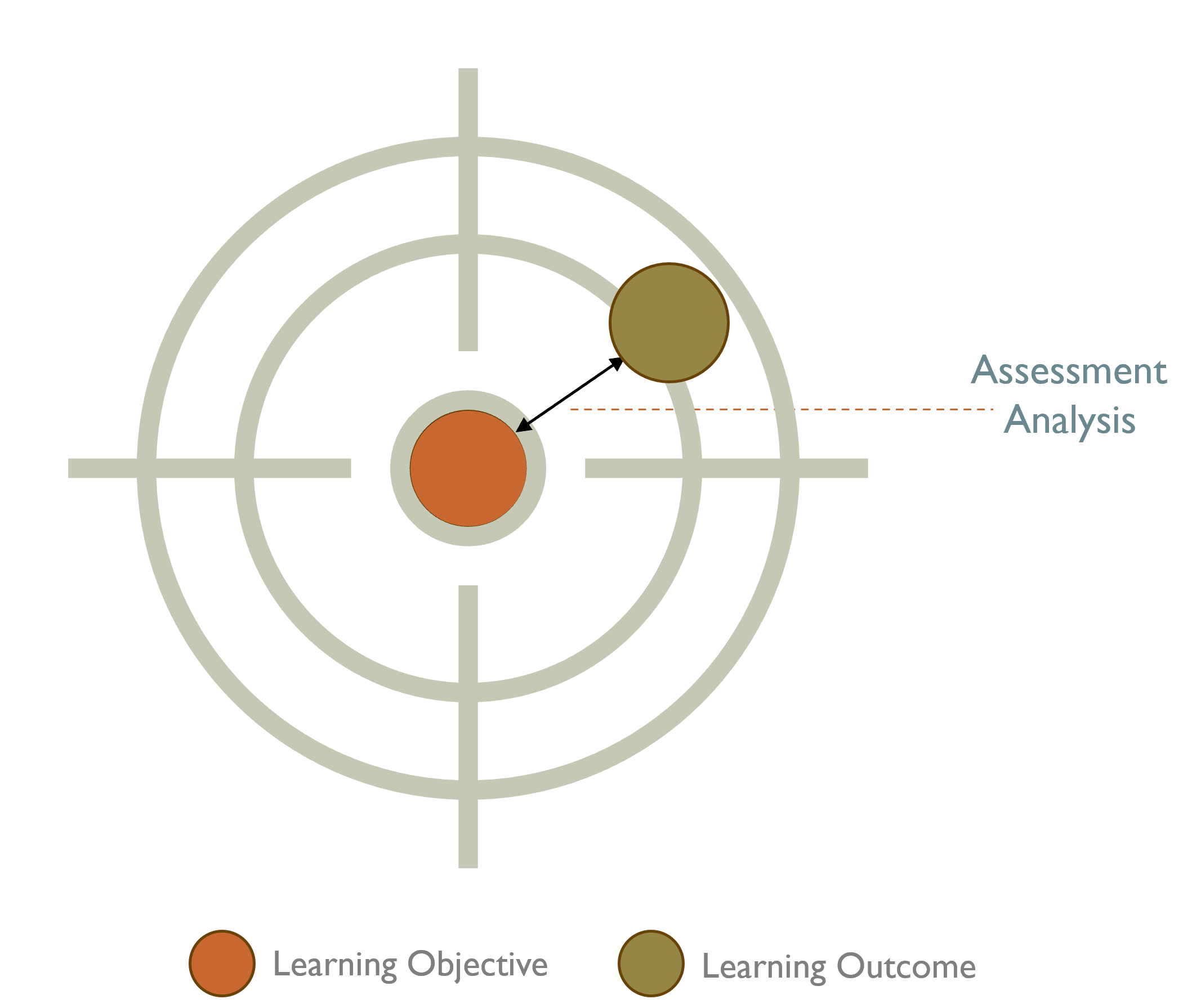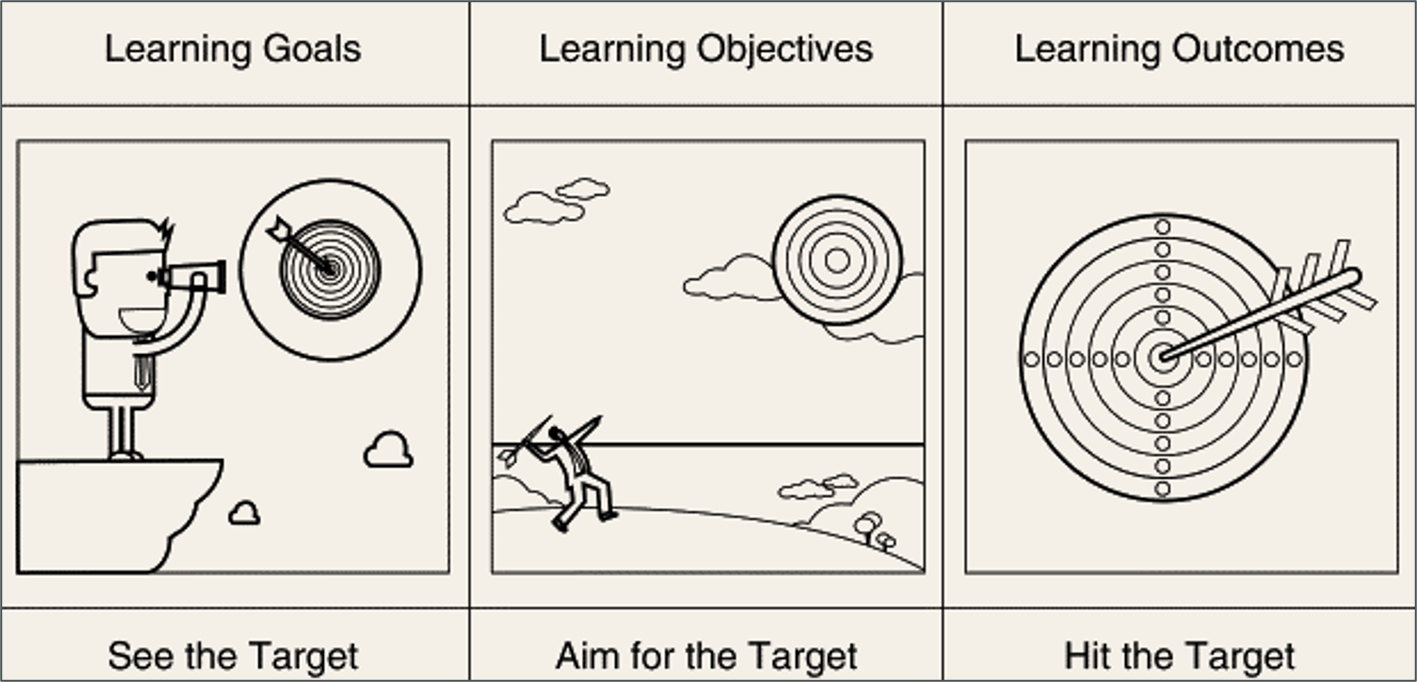Analyze
It is important to analyze the learning event after the delivery in order to determine how to make it better for the next iteration. Two important concepts are introduced in this section: assessment and evaluation. These terms are often used interchangeably, but one of the most important things I learned during my master’s program is the difference: assessment focuses on the learner and evaluation focuses on the event (Lopes, 2022).
Learning Assessment
Assessment is the process of measuring student learning by analyzing the impact of the learning goals and objectives.
The fundamental purpose of assessment is to determine how effective a course’s assignments and tests are in fostering specific learning goals in order to understand and improve student learning (Barkley & Major, 2016, p.25).
Why is it important?
Provides the educator with an understanding of the learners’ progress, which can then be used to offer guidance and support
Produces data that can Identify possible adjustments to learning activities
Is a valuable input to the evaluation process (see next section)
Personal Perspective:
Assessment analysis comes from comparing the learning outcomes with the learning objectives (see diagram). The outcome is what we want to happen; the objective is what actually happens. This comparative analysis is one of the reasons why it is so important to have well-constructed learning objectives.
Three tenets I follow when integrating assessments into learning activities include:
Make the assessments personal
Keep the communication lines open
Have fun with the activities
Resources:
Learning Assessment Techniques (LAT) “…are unique teaching structures that blend identification of learning goals, a learning activity that students to produce an assessable Learning Artifact, and guidance on how to analyze and display learning outcomes to share with multiple stakeholders" (Barkley & Major, 2016, p. 30).
(Barkley & Major, 2016, p.16)
Work sample:
Formative & Summative Evaluation
Formative Evaluation is a process in which the educator evaluates the progress of the learning event, which includes the design, development and delivery stages.
Summative Evaluation is a process in which the educator evaluates the learning event after it has been completed. The evaluation data and analysis come from multiple sources: learning assessments, student feedback, facilitator input, and third-party input.
click to enlarge
Why are they important?
Formative
Ensures there are adequate checks during the design and development stages
Provides the ability to gauge how things are going during the delivery in order to make ad-hoc adjustments
Provides an input to the summative evaluation
Summative
Provides an understanding on how successful the event was as a whole:
Were the learning objectives met?
How was the event managed?
Learning environment
Length/timing of sessions
Logistics
Helps determine adjustments to be made for the next iteration
Personal Perspective:
The importance of evaluations is often overlooked. When designing and planning for a learning event where there is a lot of material to cover, evaluations can sometimes be cut or diminished in order to fit the allotted schedule. Likewise, at the end of an intense learning event, it can be difficult to motivate learners to participate. I have experienced both scenarios as a learner and an educator, but I have learned that creating time and space for these evaluations is a critical element to making improvements for the next iteration of the event.
Work Sample:
Program Evaluation
A program, in this context, is a grouping of learning events that strive toward a common goal. A program evaluation helps determine whether the program as a whole is successful and provides suggestions for adjustments (Spaulding, 2013). There are multiple inputs to a Program Evaluation: summative evaluations from each of the learning events, student feedback, third party input, and time-delayed learning assessments (what I call "post-summative" learning assessments). This is depicted visually below.
Click to enlarge
Why is it important?
Helps determine level of program-wide success
Useful to look at the big picture in addition to each individual course
Provides the ability to notice trends across courses
Assists with determining how to adjust curriculum strategy
Personal Perspective
The program evaluation is not simply the sum of each evaluation from the learning events that comprise it (although that is one factor). It is important to be able to take a step back and look at the entire program as a learning event itself. Viewing it from this perspective, it may be possible to spot trends that occur across multiple events within the program. Additionally, it is important to measure how well the learners recall the material they have learned after time has passed. The “staying power” or lack thereof can be useful for any long-term adjustments to the program.



